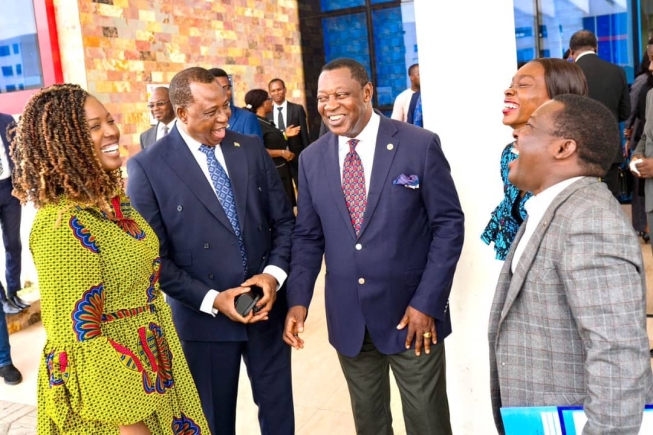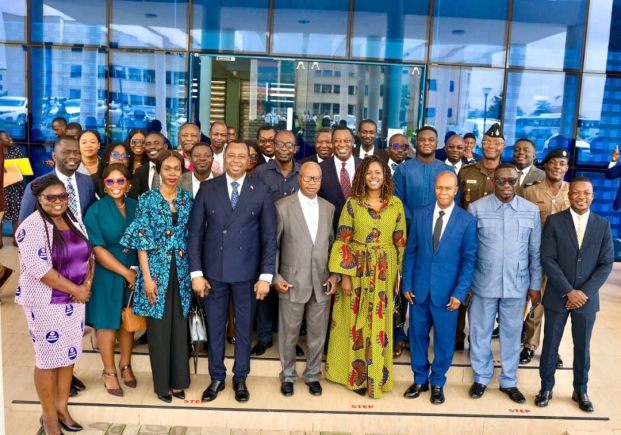
What was said at 11th Jurists’ Confab organised by UCC Faculty of Law
The Faculty of Law at the University of Cape Coast ('UCC Law') recently held the 11th edition of the Jurists' Confab on the theme: "Human Rights under the 4th Republican Constitution: Threats and Triumphs.”
The Jurists' Confab is an annual gathering that brings together various stakeholders, including lawyers, judges, academics, students, government representatives, civil society and members of the public, to discuss law-related matters of national interest.
The Convenor of the event was Julia Selman Ayetey, the Dean of the Faculty of Law at UCC, who in her opening address said Ghana had seen many triumphs in the context of its human rights record.
However, she said there have, and continue to be, threats, if not outright breaches.
She said the UCC Law was dedicated to continuing its role in advancing legal education and fostering a culture of respect for human rights in Ghana.
Dr. Joseph Whittal, the Commissioner of the Commission on Human Rights and Administrative Justice (CHRAJ), Prof. Agyeman Badu Akosa, a renowned cellular pathologist and lifestyle wellness consultant and a former Director of the Ghana Health Service and Dr. Maame Efua Addadzi-Koom, a lecturer from the Faculty of Law of the Kwame Nkrumah University of Science and Technology (KNUST) and Howard University (USA) were the three prominent speakers for the conference.
Dr. Joseph Whittal, the Commissioner for CHRAJ, emphasised that protecting human rights is essential to good governance, as stated in the Preamble to the Universal Declaration of Human Rights.
He noted that the 1992 Constitution of Ghana was established to promote human rights, marking a departure from past violations and fostering stability in the Fourth Republic.
Dr. Whittal credited the judicial system and legislative action for expanding the rights of citizens rights.
He also highlighted CHRAJ's role in criminalising practices like 'trokosi' and promoting equality. Commissioner Whittal warned that issues such as mistrust of state institutions, misuse of the Public Order Act and conflicts between human rights and culture could undermine progress. He therefore called for these threats to be addressed.

Prof. Akosa highlighted the importance of cultural rights and practices in the country's development and growth. He emphasised that Ghana has drifted away from its cultural heritage and traditions and underscored the need to reclaim and value it.
Prof. Akosa also touched on the importance of equality under the law, questioning whether all citizens are truly equal in Ghana.
He further shared his concerns about Ghana's judiciary and healthcare services, where ethics and respect for human dignity are not, in his view, being sufficiently prioritised. As a result, Prof. Akosa encouraged the teaching of ethics and respect for dignity in higher education.
Dr. Maame Efua Addadzi-Koom discussed the constitutional promise of gender equality, emphasising that there should be no discrimination based on gender and that both genders should have equal opportunities.
She outlined the basis for women's rights into three categories: global, national and personal, all within the broader theme of human rights.
Dr. Addadzi-Koom cited positive changes, such as laws criminalising domestic violence and outlawing Female Genital Mutilation.
However, she also pointed out negative realities, such as Ghana's failure to implement international human rights instruments, parliament's delay with the Affirmative Action Bill and Spousal Property Bill, the exclusion of certain women from 12 weeks of paid maternity leave under the Labor Act, and the taxation of sanitary pads.
She urged everyone to remember that "in Ghana today, women's rights are the majority's rights and must be prioritised by all".
